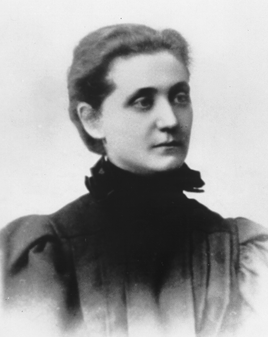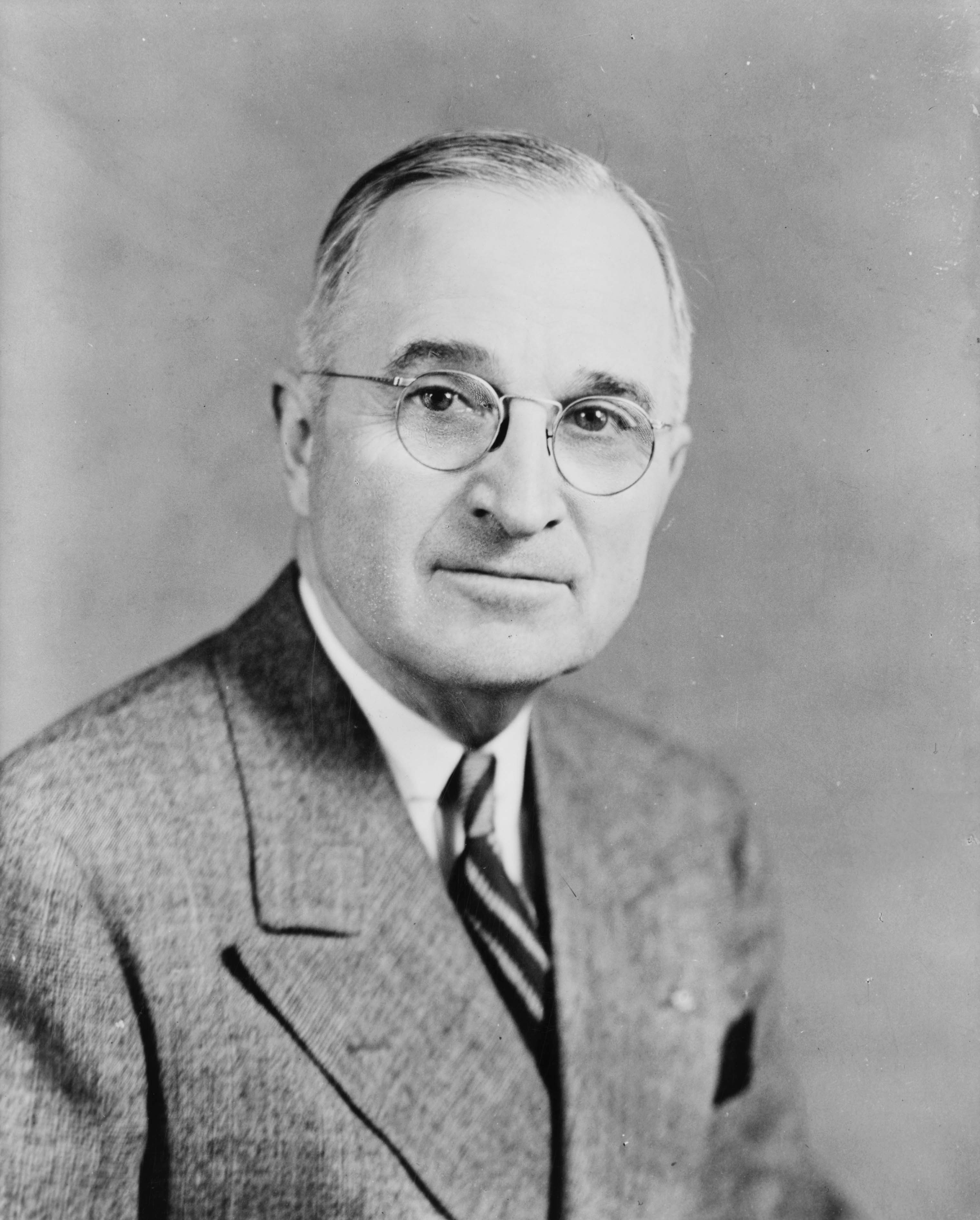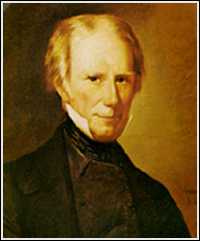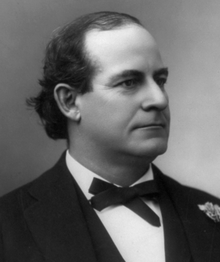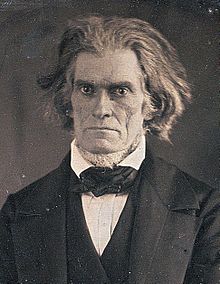Thomas Jefferson hugely influenced our political system and his voice can still be heard in politics today. He headed and helped organize the opposition party to the federalists which created permanent political parties, unheard of before this. This tradition of political parties persisted throughout american history and still is in effect. With Madison he led the first large organized movement to limit the central government of the US, in the Virginia and Kentucky Resolutions. Although Jefferson did not get what he wanted the brilliant formation of the extreme state’s rights view was used by southerners in the nullification crisis and secession. As president he promoted the idea of political parties working together to further America. He famously claimed, “We are all Republicans, we are all Federalists.” He would not only adhere to his parties ideologies but also adopt federalist policies if it strengthened the nation. He got rid of the excise tax and cut down the federal government's power but left intact much of the Hamiltonian bank system. He also negotiated the landmark Louisiana purchase which set up America for its Western Expansion which helped it define itself as a country. Jefferson overstepped his bounds with the hated embargo which caused the foundations of the government to be rocked by the people. Jefferson found the limit of his power as a president and this limit would not be ignored by future politicians who would take heed of it. Jefferson had a huge impact on our political system still felt today.
Andrew Jackson
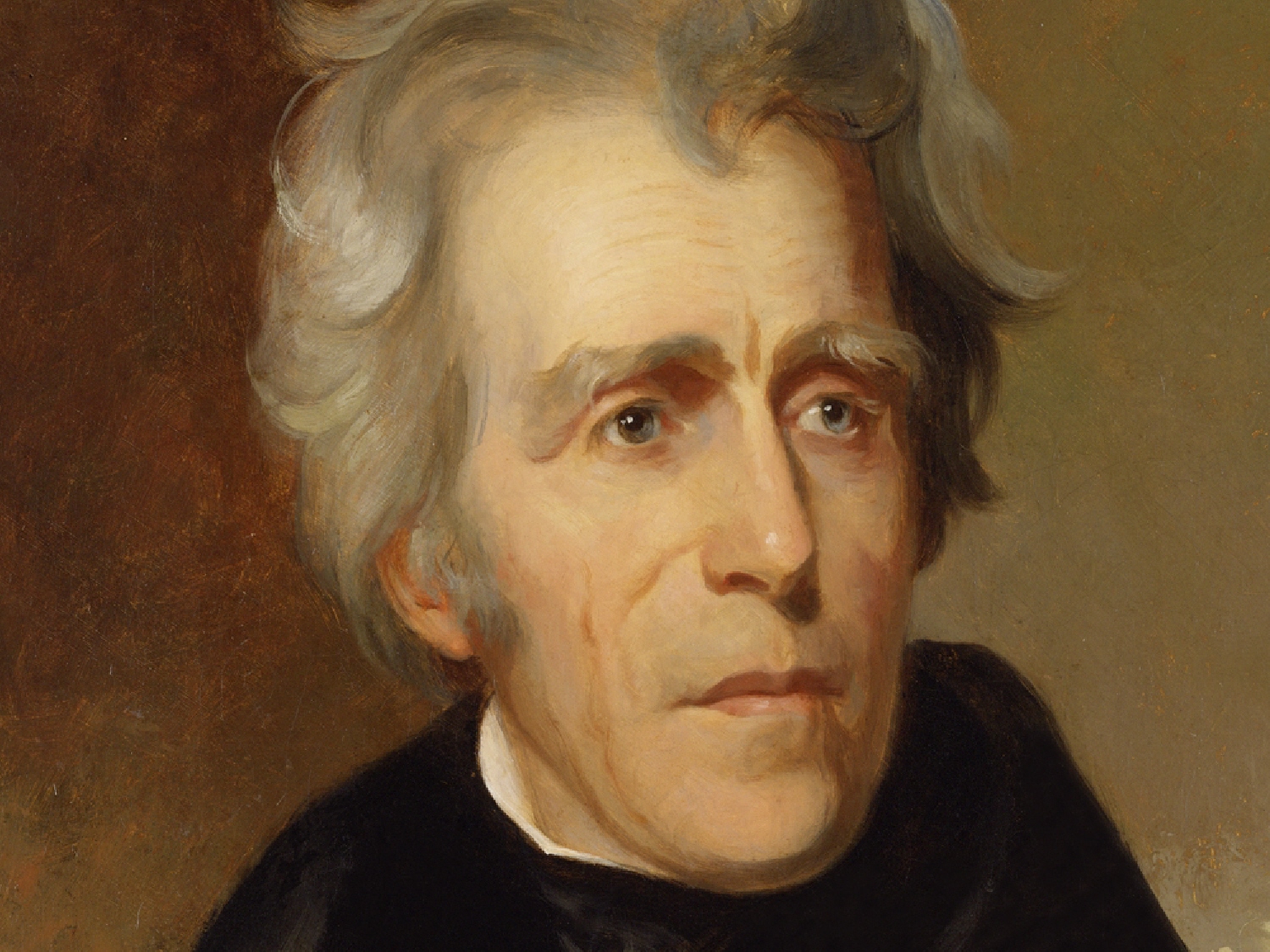

Andrew Jackson. A fiery patriot. The perfect sculpture of an American individualist, Andrew Jackson radically transformed the political system, economic foregrounds and emocional structure of America from 1829 to 1837. An already self-made American hero from the battle of New Orleans in 1812, Jackson was picking shrapnel out of his arms while John Quincy Adams went skinny dipping in the Potomac River. During the election of 1828, Jackson headed the Democratic Republican party, founded on the basis of protecting the liberty and freedom of the frontiersman. Jackson destroyed the petty aristocrat with an electoral vote of 178 to 83. At the beginning of his first term, Jackson faced a huge challenge-the Nullification Crisis. Extremely similar to his fellow patriot, Abraham Lincoln, Ol’ Hickory made the preservation of the Union his top priority. Apparently John C Calhoun thought it was a great idea to challenge the administration by threatening secession. Andrew Jackson, threatened to hang the Nullifiers and invade South Carolina. The feeling of sheer terror and discomfort radiated throughout the southern state, while Jacksonians roared on. Jackson also had a huge role in the physical expansion west, with the Indian Removal Act of 1830. Maybe a couple of Indians cried. A little. Jackson’s economic foregrounds pertained to the destruction of the monopolistic big business and banking exploitations. Nicholas Biddle, the president of the National bank was severely challenged by Jackson’s veto when he attempted to pass the recharter bill. Jackson expanded presidential power in a down-to-heart fight for the health of the nation. What Jackson did was revolutionary, especially in Politics. By the end of the era, All white men could vote, and they did, in astounding percentages, electoral college representatives were chosen directly from the public, and the two-party system had been reborn from the Jeffersonian era. Jackson had fundamentally shifted the American perspective of what it means to be an American and how we legislate in the interest of the common man.
Malcolm X

Malcolm X was the most influential Civil Rights leaders. He was a member of the Nation of Islam organization, which believed that white society was intentionally keeping African Americans from empowering themselves politically, socially and economically. They also preached that blacks should fight for a state of their own, separate from the whites. Malcolm X was so successful because he was able to use newspapers, radio and television to spread the Nation of Islam's message. He was driven, and charismatic these characteristics attracted many new people to the nation. His powerful speeches called for African Americans to stand up against oppressive whites which was the polar opposite of what Martin Luther King was preaching and fighting for. Malcolm believed that Blacks wouldn’t be handed their freedom they would have to fight for it, his inspirational words convinced many people that total segregation from whites was the only way to achieve freedom. Even after Malcolm’s assassination his ideals for blacks to fight lived on in the black panther party and other black power organizations
Susan B Anthony

She is best known for spearheading the suffragist movement for women's rights.She was a quaker and worked actively in movements to fight against the consumption of alcohol and slavery.Because she was a woman, she was not allowed to speak at temperance rallies. This experience, and her acquaintance with Elizabeth Cady Stanton, led her to join the women's rights movement in 1852. Soon after, she dedicated her life to woman suffrage.In 1866 Anthony and Stanton founded the American Equal Rights Association and in 1868 they started publishing the newspaper The Revolution in Rochester. She became president of the National American Woman Suffrage Association. In 1853, Anthony began to campaign for women's property rights in New York state. She began working as an agent for the American Anti-Slavery Society. She is the most influential woman in history and never gave up on her fight for women's suffrage. In 1905, she met with President Theodore Roosevelt in Washington, D.C., to lobby for an amendment to give women the right to vote.

She is best known for spearheading the suffragist movement for women's rights.She was a quaker and worked actively in movements to fight against the consumption of alcohol and slavery.Because she was a woman, she was not allowed to speak at temperance rallies. This experience, and her acquaintance with Elizabeth Cady Stanton, led her to join the women's rights movement in 1852. Soon after, she dedicated her life to woman suffrage.In 1866 Anthony and Stanton founded the American Equal Rights Association and in 1868 they started publishing the newspaper The Revolution in Rochester. She became president of the National American Woman Suffrage Association. In 1853, Anthony began to campaign for women's property rights in New York state. She began working as an agent for the American Anti-Slavery Society. She is the most influential woman in history and never gave up on her fight for women's suffrage. In 1905, she met with President Theodore Roosevelt in Washington, D.C., to lobby for an amendment to give women the right to vote.
Henry Ford


Henry Ford revolutionized transportation, society and manufacturing in the modern world. Ford’s idea to make a car that was not only affordable to the rich but also the middle class was revolutionary. He paid his workers high wages and improved manufacturing productivity with the assembly line which decreased costs and the time it took to make the cars. By doing this he promoted both mass production and mass consumption. Through this, he insured that they would be able to afford the cars that they made and therefore expanding his market to a larger number of people, increasing profit. His strength and greatest contribution was his manufacturing process.
John Marshall

John Marshall was the fourth Chief Justice of the Supreme Court. He is the individual most responsible for establishing the Supreme Court as the final word on what is constitutional and what is not. Before he took office, the supreme court was the weakest branch of government. In the time he spent as chief justice, he vastly increased the powers of the supreme court. He supported a strong centralized government, and, while serving, he made several important court decisions relating to federalism, confirming the supremacy of federal law over state law. While most presidents only stay in office for 4-8 years, John Marshall was changing America for over 3 decades as chief justice of the supreme court, as well as during his 19 year political career prior to appointment. During his political career he was a delegate at the Virginia convention and was responsible for helping fight for ratification of the constitution, was one of the delegates present during the infamous XYZ affair, and served as secretary of state under president John Adams. While serving as Chief Justice, he ruled on many cases, however the one that completely revolutionized the purpose of the supreme court was Marbury v. Madison, in which Marshall invalidated a provision of the Judiciary Act of 1789 on the grounds that it violated the constitution. This established the practice of Judicial review, which grants the supreme court the ability to rule things unconstitutional.
General Eisenhower
.jpg) Dwight D. Eisenhower was a five star general of the United States Army and the Supreme Commander of the Allied forces during World War II. Eisenhower is responsible for the successful planning and execution of the allied invasion of North Africa known as Operation Torch, along with the successful invasions of France, and Germany. After the Allied forces victory in World War II, Eisenhower served as Army Chief of Staff under President Harry Truman. In 1952 Eisenhower entered the presidential race as the Republican candidate and crushed his opponent Adlai Stevenson in a landslide victory. As president, Eisenhower ended the Korean War through the use of nuclear threats. His nuclear deterrence policy gave rise to the mass production of nuclear weapons and consequently the beginning of the arms race between the Soviet Union and the United States. Eisenhower created NASA in response to the Soviet launch of sputnik and he created the Defense Advanced Research Projects Agency (DARPA) which led rise to the creation of the internet. Eisenhower sent troops into Little Rock Arkansas to enforce federal court orders to desegregate public schools along with also signing the civil rights legislation in 1957 and 1960. During his presidency The United States prospered economically except for a short recession in 1958. Since the late twentieth century Eisenhower has been regarded by scholars as one of the top 10 presidents and has had a profound effect and influence on the world and the United states.
Dwight D. Eisenhower was a five star general of the United States Army and the Supreme Commander of the Allied forces during World War II. Eisenhower is responsible for the successful planning and execution of the allied invasion of North Africa known as Operation Torch, along with the successful invasions of France, and Germany. After the Allied forces victory in World War II, Eisenhower served as Army Chief of Staff under President Harry Truman. In 1952 Eisenhower entered the presidential race as the Republican candidate and crushed his opponent Adlai Stevenson in a landslide victory. As president, Eisenhower ended the Korean War through the use of nuclear threats. His nuclear deterrence policy gave rise to the mass production of nuclear weapons and consequently the beginning of the arms race between the Soviet Union and the United States. Eisenhower created NASA in response to the Soviet launch of sputnik and he created the Defense Advanced Research Projects Agency (DARPA) which led rise to the creation of the internet. Eisenhower sent troops into Little Rock Arkansas to enforce federal court orders to desegregate public schools along with also signing the civil rights legislation in 1957 and 1960. During his presidency The United States prospered economically except for a short recession in 1958. Since the late twentieth century Eisenhower has been regarded by scholars as one of the top 10 presidents and has had a profound effect and influence on the world and the United states. John Wilkes Booth

John Wilkes Booth (1838-1865) was the man who assassinated Abraham Lincoln at Ford's Theater. Before pledging allegiance to the Confederacy, he was an actor. He stopped acting to fight for the Confederacy. After shooting Lincoln, he famously jumped onto the stage, breaking his leg in the process, and yelling, “Sic semper tyrannis!” He then fled and was shot and killed twelve days later in Port Royal, Virginia. Booth’s killing of Lincoln makes him an extremely influential figure in American history. The assassination robbed the nation of the Great Emancipator, the man who was to lead the nation through the fragile process of reconstruction. After Lincoln’s death, the Democratic vice president Andrew Johnson took office. With his Democratic platform, Johnson aimed to punish the South, something Lincoln was against. He made the process of reconstruction long and arduous, resulting in southern resentment that would hold for years. If it was not for John Wilkes Booth, the process of reconstruction would have been painless and seamless under Lincoln’s command.
Abraham Lincoln
Abraham Lincoln (1809-1865) was the 16th president of the United States and the Union’s leader through the Civil War. Before becoming president, Lincoln was a Republican senator for Illinois. Lincoln always kept a calm head, maintaining composure even when times turned grim. Because of his calm head, Lincoln was the president the nation needed during the Civil War. Lincoln emancipated the slaves in the Emancipation Proclamation. He would have passed the proclamation earlier, but he brilliantly realized that doing so would cost him the Border States, and therefore cost him the Union. If Lincoln had made a mistake, the Civil War would have been lost and the Union would have been broken. After the war, Lincoln was willing to be generous with the South. He was flexible with his demands and tried to make for a speedy and peaceful reunification of the nation. Congress was not so lenient, and they attempted to make it more difficult for Confederate states to be readmitted to the Union with the Wade-Davis Bill; however, Lincoln vetoed the bill and implemented his more conservative plan. Lincoln’s plan was noble and would have led to a hasty recovery from the Civil War, but John Wilkes Booth’s assassination of Honest Abe ended the hope for clean unification and began the dirty era of Reconstruction.




